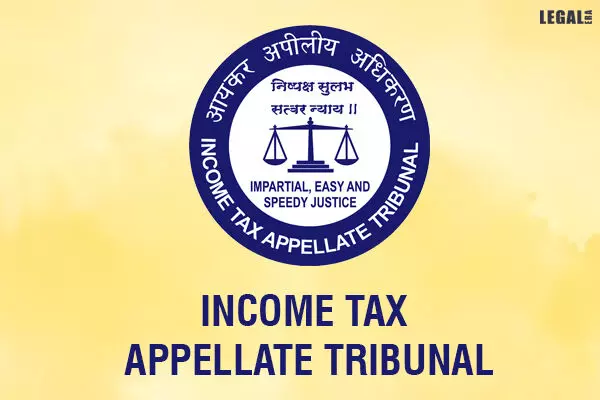- Home
- News
- Articles+
- Aerospace
- Artificial Intelligence
- Agriculture
- Alternate Dispute Resolution
- Arbitration & Mediation
- Banking and Finance
- Bankruptcy
- Book Review
- Bribery & Corruption
- Commercial Litigation
- Competition Law
- Conference Reports
- Consumer Products
- Contract
- Corporate Governance
- Corporate Law
- Covid-19
- Cryptocurrency
- Cybersecurity
- Data Protection
- Defence
- Digital Economy
- E-commerce
- Employment Law
- Energy and Natural Resources
- Entertainment and Sports Law
- Environmental Law
- Environmental, Social, and Governance
- Foreign Direct Investment
- Food and Beverage
- Gaming
- Health Care
- IBC Diaries
- In Focus
- Inclusion & Diversity
- Insurance Law
- Intellectual Property
- International Law
- IP & Tech Era
- Know the Law
- Labour Laws
- Law & Policy and Regulation
- Litigation
- Litigation Funding
- Manufacturing
- Mergers & Acquisitions
- NFTs
- Privacy
- Private Equity
- Project Finance
- Real Estate
- Risk and Compliance
- Student Corner
- Take On Board
- Tax
- Technology Media and Telecom
- Tributes
- Viewpoint
- Zoom In
- Law Firms
- In-House
- Rankings
- E-Magazine
- Legal Era TV
- Events
- Middle East
- Africa
- News
- Articles
- Aerospace
- Artificial Intelligence
- Agriculture
- Alternate Dispute Resolution
- Arbitration & Mediation
- Banking and Finance
- Bankruptcy
- Book Review
- Bribery & Corruption
- Commercial Litigation
- Competition Law
- Conference Reports
- Consumer Products
- Contract
- Corporate Governance
- Corporate Law
- Covid-19
- Cryptocurrency
- Cybersecurity
- Data Protection
- Defence
- Digital Economy
- E-commerce
- Employment Law
- Energy and Natural Resources
- Entertainment and Sports Law
- Environmental Law
- Environmental, Social, and Governance
- Foreign Direct Investment
- Food and Beverage
- Gaming
- Health Care
- IBC Diaries
- In Focus
- Inclusion & Diversity
- Insurance Law
- Intellectual Property
- International Law
- IP & Tech Era
- Know the Law
- Labour Laws
- Law & Policy and Regulation
- Litigation
- Litigation Funding
- Manufacturing
- Mergers & Acquisitions
- NFTs
- Privacy
- Private Equity
- Project Finance
- Real Estate
- Risk and Compliance
- Student Corner
- Take On Board
- Tax
- Technology Media and Telecom
- Tributes
- Viewpoint
- Zoom In
- Law Firms
- In-House
- Rankings
- E-Magazine
- Legal Era TV
- Events
- Middle East
- Africa
ITAT Delhi: Revenue Cannot Arbitrarily Reclassify Income Accepted in Previous and Subsequent Years

ITAT Delhi: Revenue Cannot Arbitrarily Reclassify Income Accepted in Previous and Subsequent Years
The Delhi bench of Income Tax Appellate Tribunal (ITAT) has rendered a decision in support of International Recreation Parks (P) Ltd. (the assessee), emphasising that while the principle of res judicata (claim preclusion) might not be rigidly applicable to income tax proceedings, revenue authorities are not at liberty to arbitrarily reclassify income into a distinct category. This stands particularly true when the head of income asserted by the assessee has been consistently acknowledged by revenue authorities in both prior and subsequent assessment periods.
In the case at hand, the pertinent details reveal that the assessee was allocated land by the Noida Authority, entailing a 90-year lease, for the establishment of an amusement park. The land usage was designated as 85 per cent for a theme amusement and entertainment park and 15 per cent for auxiliary commercial amenities supporting the park.
The assessee contended that its earnings for the year stemmed from real estate development geared towards an amusement park's objectives. This encompassed income derived from various sources, including rental income from licensed areas, revenue from signage, kiosks, promotional services, maintenance charges, and parking fees.
Contrarily, the Assessing Officer (AO) diverged from the assessee's income categorisation. The AO noted that the principal operational revenue of the company was primarily generated by leasing out the commercial complex, coupled with revenue from maintenance and parking fees within the commercial premises. Building on this assessment, the AO reclassified the claimed tenancy income as business income. Subsequently, an addition to the income was made.
However, the Commissioner of Income Tax (Appeals) intervened and reversed the AO's addition to the income, leading to its deletion.
A two-member Bench of the ITAT, comprising M. Balaganesh (Accountant) and Anubhav Sharma (Judicial), highlighted that the Revenue authorities were unable to contest the fact that the assessee's assertion of rental income had been endorsed in both preceding and subsequent years. This acknowledgment formed the foundation for the relief granted by the Commissioner of Income Tax (Appeals), or CIT(A).
The panel determined that while the principle of res judicata may not be directly applicable to income tax proceedings, the acceptance of a specific income category by the revenue in both the previous and subsequent year's assessments precludes the arbitrary attribution of income to a different category.
Considering these findings, the ITAT Bench concluded that the Revenue's raised objections lacked substance. Consequently, the appeal put forth by the Revenue was rejected.



